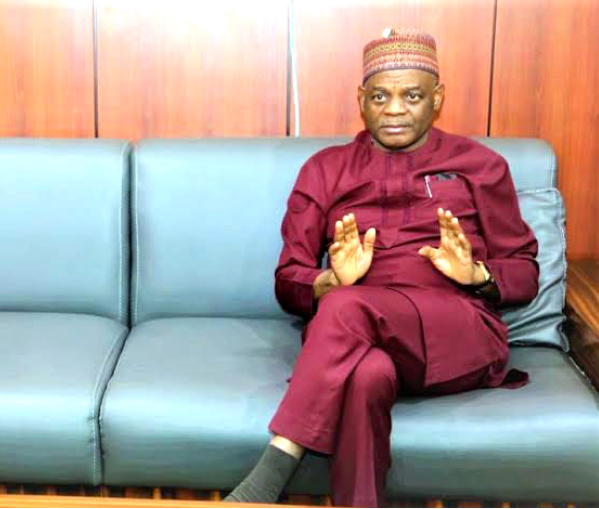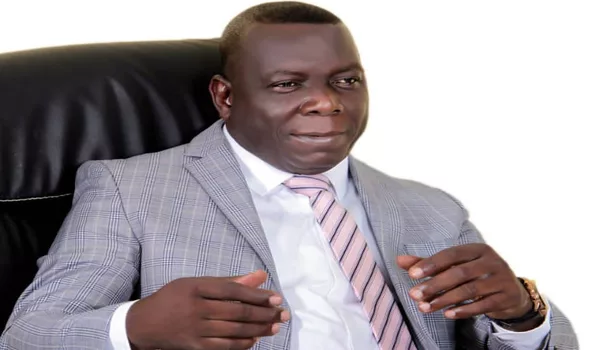Amidst the dynamic challenges of higher education, the Tertiary Education Trust Fund (TETFund) stands out for its dedication to student-centric solutions.
Through strategic investments and collaborative initiatives, TETFund continues to elevate the academic experience across Nigerian universities.
TETFund’s commitment to student-centric solutions is exemplified through its diverse range of initiatives aimed at enhancing learning outcomes and student welfare.
From funding state-of-the-art infrastructure projects to promoting research and development, TETFund continually strives to create an environment conducive to academic excellence.
Moreover, through scholarships, grants, and capacity-building programs, TETFund empowers students and faculty alike to contribute meaningfully to Nigeria’s socio-economic development.
The TETFund recently organised a one-day workshop on “Emerging Areas of Students Needs in Beneficiary Institutions” in Abuja.
At the workshop, Executive Secretary of TETFund, Arc. Sonny Echono, charged lecturers overseeing career centres in colleges of education to develop skills in modern technology and pass on relevant knowledge to students to make them employable and competitive with their peers globally.
He also emphasised the need for them to ensure they make the sacrifice of training themselves, saying there are new ways, new skills in communication.
“Don’t make your students as analogue as we are, let them be able to compete with their peers and stay on top of the game with cutting-edge that has become normal in other countries.”
He disclosed that TETFund introduced the Career Services Centre to complement other programmes in tertiary institutions in the year 2024 disbursement cycle.
“The Fund considers the establishment of these centers necessary for the development of students’ careers and their employability, which is the raison d’etre for establishment of tertiary educational institutions. Career services centers have helped students in advanced nations to make informed decisions regarding their career paths,” he said.
According to him, the workshop was conceived mainly for the purpose of brainstorming over some identified areas of intervention that are seen to be highly beneficial not only to the institutions, but also to students who are the ultimate beneficiaries of all the interventions in the tertiary institutions.
Speaking further on the career centers, he said they “provide information for students on trends in the job market, opportunities, and requisite skills as well as linkages with the employment industries including the alumni of the institutions.
“They provide students with tools for self-assessment to identify their interests, strengths, weaknesses and prospects. Career centers further provide counselling, guidance, and support to all students.”
The TETFund boss also disclosed that “the Fund recently received a communication from the Federal Ministry of Education regarding the Presidential directive to TETFund on the support of teaching practice and the recommendations of the National Salaries, Incomes and Wages Commission regarding the teaching practice allowance, which now includes Faculties of Education in our Universities.”
According to him, ‘while the Fund, as approved by the Board of Trustees, provided a 3 days Duty Tour Allowance to supervisors, based on the civil service recommended rate and a transportation support based on grade levels, the Salaries and Wages Commission provides for the payment of monthly stipends to supervisors and students-teachers at approved rates irrespective of rank or grade level and without provision for transport.
“As a directive of government, the Fund is obliged to comply and implement the content and spirit of the directive.
He however noted that the issue required collective brainstorming that may lead to the reworking of the teaching practice funding template currently in use.
“The methodology employed in the computation of the allowance by the Fund and that of the Salaries, Incomes and Wages Commission appear to be different, hence the need for harmonisation to achieve shared acceptance.
“The Fund, by all means recognises the significance of the inclusion of the student- teachers and the Faculties of Education which is to make the teaching profession more attractive.
“However, considering the impact of these provisions on our disbursement policies and processes, we will be making necessary adjustments in our disbursement guidelines going forward, in consultations with the Federal Ministry of Education,” he said.
Also speaking, the National President of Colleges of Education Academic Staff Union, COEASU, Dr. Smart Olugbeko, noted that the workshop was aimed at addressing issues with emerging students’ needs on areas of career centres, teaching practice, development of hostels, among others.
While commending TETFund for the implementation of career centres, he urged the centres to look into the issue of employability of students from the colleges as employers of labour have raised such concerns over it.
“The major area of concern which we need to look into is the are of employability of our students because it is one of the major areas of concerns employers of labour have been talking about, whether our graduates are actually employable.
“It is not just about the content of what we teach in our various schools, it is also about how we have prepared our graduates, our students for them to be able to teach in our various schools or became employable when they leave the various institutions,” he said.
He stressed the importance of skills development among those manning the career centres to be well equipped in order to train students to be able to perform such functions, adding that you can’t give what you don’t have.
“We are talking about the function of making them to have an active and productive interface with the industry and the society, and this will actually be able to be performed by an expert, the person that is well-equipped to carry out that task,” he said.
Olugbeko also appealed on TETFund to ensure uniformity in infrastructure, stating that it will not be appropriate to ask institutions to go and set up career centres without uniformity and functionality of infrastructure like the microteaching infrastruicture provided by government in all the colleges.
“If we allow institutions to make use of infrastructure that are not adequately designated to perform the function of career centres then we will be having career centres that are not functional,” he said.
The COEASU President further called on TETFund to upscale its monitoring and evaluation activities in the centres, warning that no matter the level of intervention provided, a deficient monitoring function will not produce anything meaningful from them.
On his part, the Executive Secretary of the National Commission for Colleges of Education, Prof Paulinus Okwelle, expressed gratitude to TETFund for the intervention on career centres in CoEs and other tertiary institutions.
Okwelle noted that cancelling in the institution has to go beyond making career choices to look at how to fit into the various career paths that can be found in education, stating that educators have more work to do now in the society than before.
“The expectation of a teacher is far more than what it used to be because you are dealing with a society that is so complex. So, we need to be able to apply multi-approaches to make them understand that not everything that comes their way need to be taken,” he said.
The NCCE Executive Secretary also disclosed that the colleges have been empowered by law to also run degree programmes in addition to training teachers for the basic education subsector.











